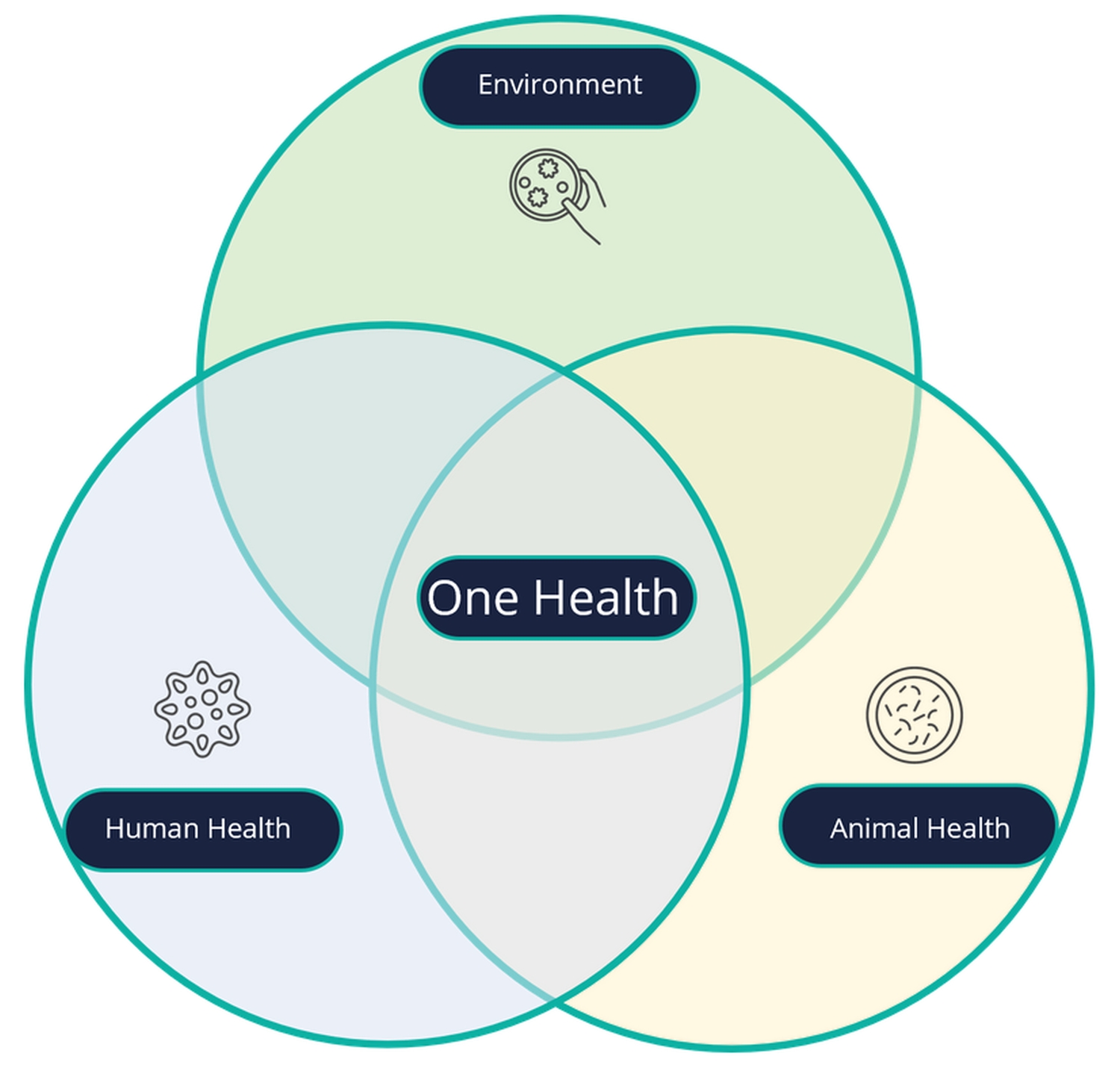- Home
- T1-1 PARTICIPANT LIST FOR ONE HEALTH MALAWI
- T1-2 PATHWAYS FOR ONE HEALTH MALAWI
Pathways for One Health Malawi
Pathways for One Health Malawi
Currently, the Public Health Institute of Malawi (PHIM) coordinates One Health activities in Malawi. Lilongwe University of Agriculture and Natural Resources (LUANAR) is the country multiplier who are going to take the lead in implementing COHESA project activities.
One Health Joint Plan of Action (2022‒2026)
The Quadripartite Organizations – the Food and Agriculture Organization of the United Nations (FAO), the United Nations Environment Programme (UNEP), the World Organisation for Animal Health (WOAH, founded as OIE), and the World Health Organization (WHO) – collaborate to drive the change and transformation required to mitigate the impact of current and future health challenges at the human–animal– plant–environment interface at global, regional and country level.
Responding to international requests to prevent future pandemics and to promote health sustainably through the One Health approach, the Quadripartite has developed the One Health Joint Plan of Action (2022–2026) (OH JPA).
- View the document here.
WHO's Weekly Epidemiological Record (WER) serves as an essential instrument for the rapid and accurate dissemination of epidemiological information on cases and outbreaks of diseases under the International Health Regulations and on other communicable diseases of public health importance, including emerging or re-emerging infections.
An electronic bilingual English/French version of the WER is accessible every Friday and can be downloaded free of charge.
- Click here to the WER webpage.
A Subject by Subject One Health Policy Framework Approach
Often, many "One Health" in country institutions are already in place, but are not aware of the One Health approach. Rather than re-inventing the wheel and creating change, which can be very disruptive, One Health can be realised by aligning existing institutions to start following a One Health narrative.
The list below provides a guidance/framework on subjects/categories that need to be done to carry out in country One Health. Exisiting institutions can be profiled to match these subjects/categories, and create new ones where required.
Disease Surveillance and Monitoring
- Early detection and reporting of zoonotic diseases.
- Data collection, analysis, and sharing among relevant sectors.
Risk Assessment and Management
- Identifying and prioritizing potential health risks at the human-animal-environment interface.
- Developing strategies to mitigate and manage these risks.
Policy and Regulatory Frameworks
- Legislation and regulations governing health, agriculture, environment, and wildlife sectors.
- Harmonization of policies to support One Health goals.
Public Health Interventions
- Vaccination programs and disease prevention measures for both humans and animals.
- Health education and awareness campaigns.
Livestock and Wildlife Health
- Disease control and management in domestic animals and wildlife populations.
- Wildlife conservation and habitat preservation.
Environmental Health and Conservation
- Pollution control, waste management, and sanitation practices.
- Biodiversity conservation and sustainable land use planning.
Food Safety and Security
- Ensuring safe and nutritious food production and distribution.
- Monitoring and regulating foodborne pathogens.
Emergency Response and Preparedness
- Developing rapid response plans for outbreaks and disasters.
- Coordinating resources and personnel for effective response.
Research and Innovation
- Promoting interdisciplinary research on zoonotic diseases and ecosystem health.
- Encouraging innovation in healthcare, agriculture, and environmental sciences.
Capacity Building and Training
- Providing education and training for healthcare professionals, veterinarians, and other stakeholders.
- Strengthening laboratory and diagnostic capabilities.
Community Engagement and Participation
- Involving communities in disease surveillance, reporting, and response efforts.
- Fostering a sense of ownership and responsibility for One Health initiatives.
Cross-Sectoral Collaboration
- Coordinating efforts among ministries of health, agriculture, environment, and wildlife.
- Facilitating partnerships with NGOs, academia, and international organizations.
One Health Information Systems
- Establishing integrated data systems for seamless information sharing across sectors.
- Ensuring privacy and security of sensitive health data.
Monitoring and Evaluation
- Regularly assessing the impact and effectiveness of One Health interventions.
- Using feedback to adjust policies and strategies as needed.
Advocacy and Public Communication
- Promoting the importance of One Health principles to policymakers and the public.
- Disseminating information through various communication channels.
Financing and Resource Allocation
- Identifying funding sources and allocating resources for One Health initiatives.
- Ensuring financial sustainability for long-term success.
International Collaboration and Cross-Border Issues
- Collaborating with neighboring countries on transboundary health issues.
- Adhering to international agreements and guidelines related to One Health.
Informal Holistic Approach
- Permaculture is an approach to land management and settlement design that adopts arrangements observed in flourishing natural ecosystems. It includes a set of design principles derived using whole-systems thinking. It applies these principles in fields such as regenerative agriculture, town planning, rewilding, and community resilience.
- Permaculture has many branches including ecological design, ecological engineering, regenerative design, environmental design, and construction.
- It also includes integrated water resources management, sustainable architecture, and regenerative and self-maintained habitat and agricultural systems modeled from natural ecosystems.[
One Health in a "Nutshell"
'One Health' is an integrated, unifying approach to balance and optimize the health of people, animals and the environment. It is particularly important to prevent, predict, detect, and respond to global health threats such as the COVID-19 pandemic.
The approach mobilizes multiple sectors, disciplines and communities at varying levels of society to work together. This way, new and better ideas are developed that address root causes and create long-term, sustainable solutions.
